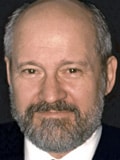
Stephan Helgesen
After watching and listening to economists and politicians ride the media merry-go-round, espousing their economic recovery plans and sounding like freshman economics teachers or Madison Avenue ad executives, I couldn’t stand it anymore. I turned off the television set and thought about what’s wrong with all their arguments, whether it’s stimulus-based deficit spending, 9-9-9, or 20-20 in 2020. Then it came to me: What’s wrong is that the economic theory we practice today is not science, though we insist it be presented as such.
It’s more like art – not the paint-by-numbers variety, but a traditional school of art like realism that depends on a few constants: a stable, unchanging motif; suspension of conscious analytical judgment (allowing only the eye and not the mind to judge the depiction of reality); and the use of dependable tools like the right brushes and paint or, as in the case of the marketplace, interest rates, taxes, incentives, investments, etc.
There are many economic theories offered by economists and by the candidates for president, but for me they all seem to be based on predictability. The only problem is that real life is constantly changing, and human beings are always surprising us. Too often, economists and politicians look at a financial or economic situation and plot their strategies without factoring in enough “wild cards” or margin of error for cultural differences, changing mores, etc.
If an economic strategy doesn’t factor them in, we might as well as have someone like “Jimmy the Greek” Snyder as our treasury secretary – a man whose lifetime success rate was dramatically better than that of most economists.
Using an outdated prism
There are those (like the Occupy Wall Street protestors) who say our current economy was built on “junk economics” and that capitalism is an onerous, one-sided, unfair system and ought to be replaced (though they don’t say with what). Still others say that capitalism is dying or on life-support.
Staying with the art analogy, our current economy more closely resembles the abstract expressionism of Jackson Pollack than realism. We cannot analyze it correctly because we’re using an outdated prism that only offers limited explanations based on outmoded assumptions.
Unlike Jackson Pollack, who knew what he was trying to achieve, our politicians and candidates aren’t completely sure (though they say it’s “job creation” as if full employment would entirely solve our economic problems). Surprisingly, their plans reflect a profound lack of understanding of the angry, confused, disheartened and distrustful America of 2011.
Instead, the economic plans of the president and the candidates resemble the two major political parties’ ideologies: For the Republicans, shrink government and empower the private sector and individual; and for the Democrats, grow government and empower the masses through government intervention and control.
What we must demand
Americans are not economists, but they’re not stupid, either. They want reform as contrasted with change, and the first place they’re willing to go is the economy. The administration and the candidates must understand that and present an economic view of America that listens to both halves of America and incorporates elements from each philosophical camp. After all, we’re just people who want to work, play, save, spend, love, and live within an economic system that doesn’t go out of its way to injure or disadvantage anyone.
To ensure that, we must be wary of junk economics or any theory whose success depends on unchanging conditions, whether those theories come from the White House, the Houses of Congress or the candidates’ houses. We inherited capitalism and democracy, and with any inheritance, our attachment to it grows in direct proportion to our belief in its ability to enrich us.
With that in mind, we must not only demand that the economic recovery plans presented to us in the coming months are based on sound economics, but also be told in no uncertain terms how they can help us keep America’s promises to all of its people.
Stephan Helgesen is a retired foreign-service officer who lived and worked in 24 countries. He was a small-business owner on three separate occasions. He is now the honorary consul for Germany in New Mexico and owner of Second Opinion Marketing, an Albuquerque export consultancy. He can be reached at helgesen@2ndopinionmarketing.com.